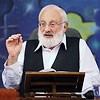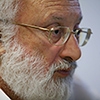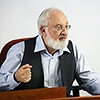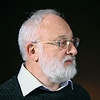The Wall That Connects Us
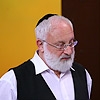 Talmud Eser Sefirot, Part 8, Item 53: All ten Sefirot have Zahar and Nukva (male and female parts), divided into two different realities. ZON, which contains most of the notion of death because it had seven kings who died, has male and female qualities, divided into different Partzufim. Sometimes it appears as if they are connected, but that is not so because they are attached to each other back to back through a shared wall (Ahoraim de Ima).
Talmud Eser Sefirot, Part 8, Item 53: All ten Sefirot have Zahar and Nukva (male and female parts), divided into two different realities. ZON, which contains most of the notion of death because it had seven kings who died, has male and female qualities, divided into different Partzufim. Sometimes it appears as if they are connected, but that is not so because they are attached to each other back to back through a shared wall (Ahoraim de Ima).
The Zohar says, “Until Hesed came and divided them,” meaning Hassadim and Gevurot from the union of Aba Ve Ima that descend into ZON, severing and separating ZA and Nukva from each other. That’s because they can unite only by becoming separate, big Partzufim.
First of all it is necessary to reveal the flaws separating Zeir Anpin and Nukva (the Creator and creation). Then we see that this wall between them (called Kotel) has to exist and be felt! Without it we will not find out how to make a calculation, what to ask for, and where to make efforts in order to revoke this wall and turn it into a place of union.
Perfection can only be reached out of the sensation of deficiency. I have to reveal this wall separating us. That is why there is a custom to come and pray by the Temple Wall. We pray for the wall to disappear so we would be able to enter the Temple, the place of holiness, the unification of Zeir Anpin and Nukva that ascend into Aba ve Ima and become as one whole. Aba ve Ima is the “Holy of Holies” of the upper spiritual Temple – the level of GAR of the Light of Hochma.
[32308]
From the 3rd part of the Daily Kabbalah Lesson 1/9/11, Talmud Eser Sefirot
Related Material:
Separating In Order To Connect
Understanding Each Other
A Construction Plan “HaVaYaH”



